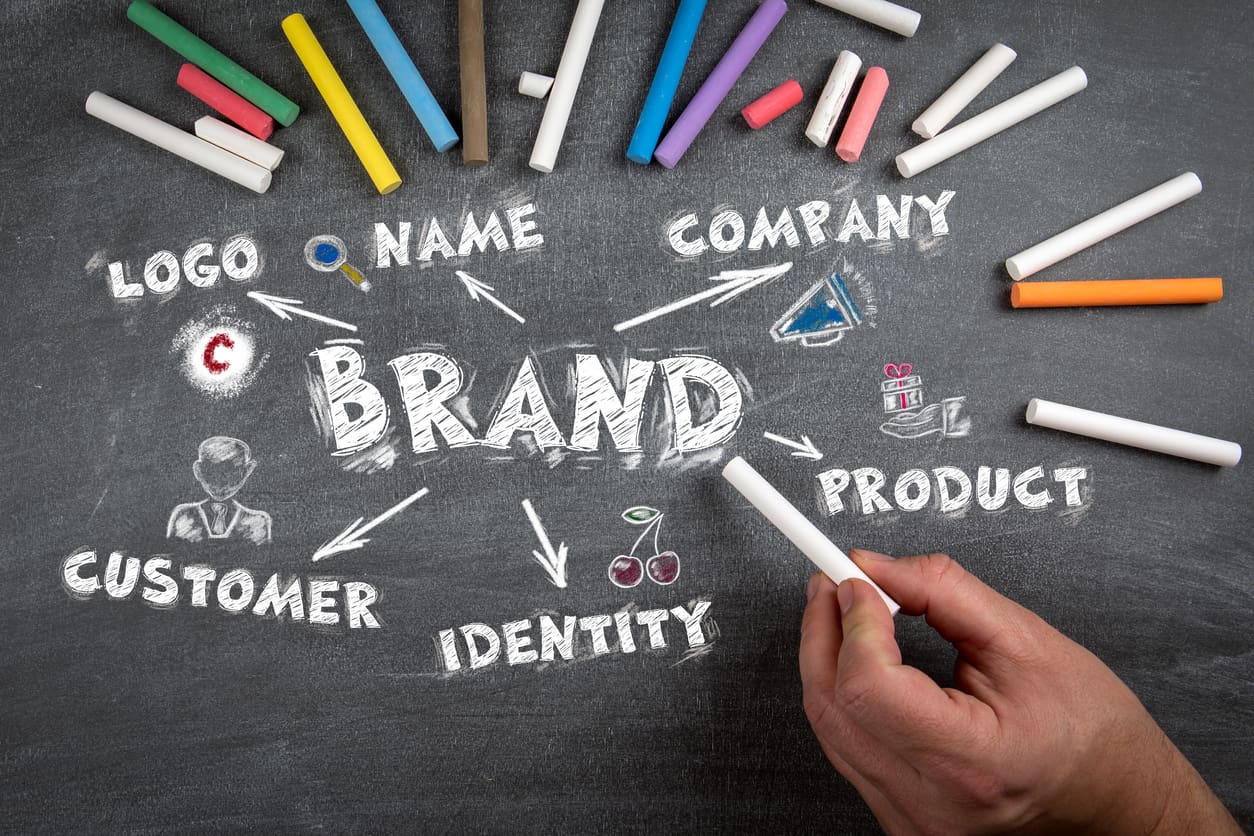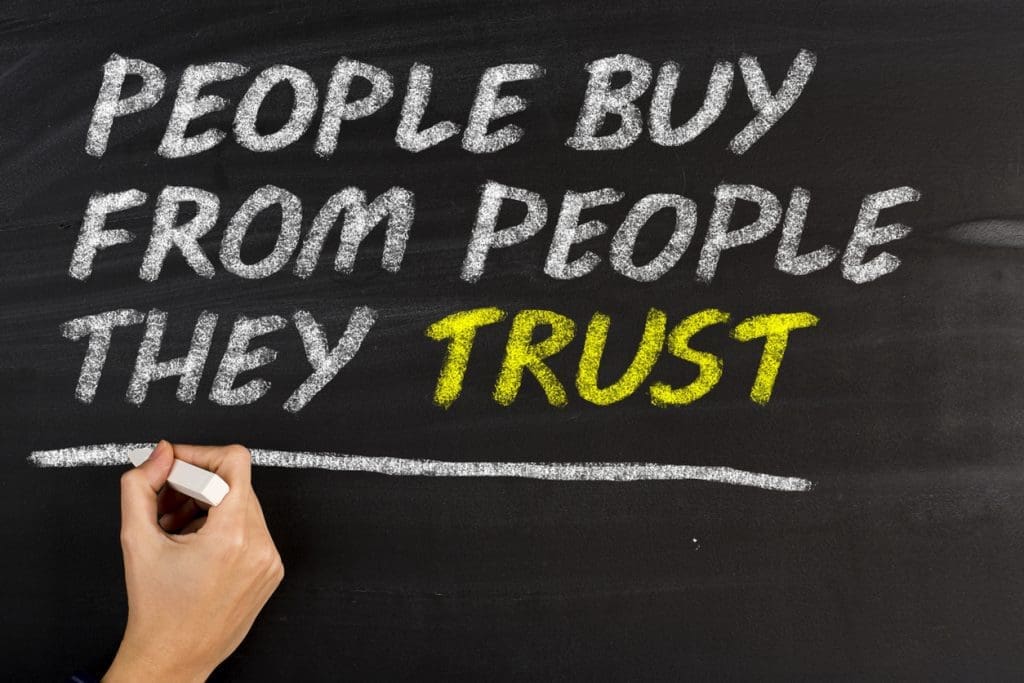
Your brand reputation manager ensures a successful brand online and maintains good brand reputation. Learn how in our guide below.
In the digital age, how your business is perceived online can influence business and revenue growth.
Everything from online reviews and customer testimonials on Google and third-party review sites to mentions on social media, visibility in search rankings, and word-of-mouth recommendations are factors that influence your brand’s reputation.
To stand out in your industry, your brand needs a positive reputation. Failing to establish and maintain it can spell disaster for your firm.
In our guide, we will explore brand reputation, provide you with a brand reputation management review, provide tips on how to manage your brand’s digital reputation, and explain why a brand reputation manager is an essential tool on your path to success.
What is a Brand Reputation?
To begin the discussion of brand reputation, it can be useful to understand what makes up a “brand.”
A brand is an intangible concept or set of concepts that help others identify a particular individual, product, or company. This concept can include recognizable logos, trade dress, digital properties, and identities. Your personal brand or business brand represents one of the most valuable assets in your possession.
Compare brand vs. reputation – while a brand indicates how recognized you are in your industry, a reputation is there to measure how credible your brand is. Both of them are important to any business as they determine how known and well-loved your brand is.
Online, your brand reputation is the consensus public perception of your company’s footprint related to the brand itself. This perception is critical not only for your existing customer base but also in attracting potential customers to your company. With a positive brand reputation, your customers become powerful brand advocates, reinforcing your brand and its reputation, thereby highlighting brand reputation importance.
Why is Brand Reputation Important?
It is a time-honored saying that “it takes years to build a brand and only five minutes to ruin it.”
Whether you know it or not, your brand reputation matters. Let’s explore the benefits and risks associated with your brand’s digital reputation:
Benefits of a Positive Brand Reputation
Brand loyalty — built on a positive brand reputation — creates an atmosphere of positive experiences on the part of customers. That’s not the only benefit; consider also:
- A positive brand increases brand recognition across marketing channels
- It stimulates word-of-mouth marketing through positive reviews and other factors
- It improves the effectiveness of advertising
It can even attract top talent by increasing employee engagement with the brand online. Happy employees are a great way to improve brand recognition, and this translates to decreases in recruiting and outreach costs for job candidates. Therefore, the importance of brand reputation should never be overlooked.
Risks Associated With a Negative Brand Reputation
Imagine if your brand was damaged on social media or by poor customer experience factors. This damage can have direct effects on your bottom line. Consider these alarming statistics:
- Bad brand reputations are estimated to cost businesses as much as $537 billion, according to a major consumer study.
- A decrease in star ratings on popular review sites translates into as much as 9% in revenue losses.
- 71% of job candidates will not apply to companies plagued with bad reputations arising from negative press or unflattering reviews by employees. This drives up hiring and retention costs dramatically.
It is no secret that customers evaluate companies based on online reviews. Your customers are reading reviews, and the information they convey can influence purchasing decisions. When one customer posts negative sentiments, other customers are likely to take that negative information into account.
Can your business afford to lose out on sales, or can excellent customer service — and the brand-building favorable reviews that come from such service — lead you toward continued success in your industry?
Let’s dive even deeper into the solutions provided by managing your brand reputation.
What is Brand Reputation Management?
Brand reputation management is directly related to the broader concept of online reputation management.
As with online reputation management, many strategies and services are used to establish, build, and protect your brand. The real difference, of course, is that online reputation management focuses on your overall digital footprint while brand reputation management is concerned with the qualities that resonate with customers.
An online brand reputation management strategy is comprised of aspects like:
- Social media monitoring and management
- Content development and promotion
- Review management (on platforms like Google reviews, etc.)
- Analysis of the customer experience factors that lead to negative reviews and negative comments online
A brand reputation management strategy ultimately increases customer confidence by fostering trust between your company and its customers. Think of it as an insurance policy to stave off the damaging effects of unflattering user-generated content and every negative comment associated with your brand.
Another point to note is that an online reputation management strategist is slightly different from a brand manager. While the former focuses on your digital reputation, the latter is focused on the public’s perception of your brand overall. Therefore, you’ll see that an online reputation manager job description will be more focused on digital media.
The Core Components of a Brand Manager’s Strategy
Brand management — and brand reputation management — are designed to foster consumer confidence and brand loyalty in your business. Even local businesses benefit from a brand reputation management strategy.
With the many tools and components associated with maintaining a positive brand reputation, several of these components of a corporate reputation management strategy stand out:
Social Listening and Monitoring
Online reputation management is important, and that’s why social listening should be part of your brand reputation strategy. Social listening and monitoring are closely related, offering insights into the public’s perception of your brand. Social listening tools are used to identify brand mentions across platforms, especially social media channels. These same tools are essential in any reputation management software toolkit.
Social media monitoring is a key component of brand reputation management. With this tool in place, it can be less time-consuming to keep track of everything relevant to your business. With the tool, you won’t have the hassle of going through each social network, searching individual tags and conversations happening about your brand.
Listening and monitoring also allow your company to respond in a timely manner to customer questions and negative feedback. This improves customer satisfaction indexes by building trust and engagement with the people who matter most: the consumers who drive your business’s growth.
Competitor Analysis
Understanding what your competitors are doing can reveal insights that help you build and support a robust brand reputation.
With competitor analysis, you can uncover gaps in your own brand reputation management strategies. With your reputation online being so critical, understanding what works — and what doesn’t — can help you fill in any gaps.
You can also identify customer satisfaction levels associated with your direct competitors. By analyzing social media activity, evaluating online reviews, and investigating rankings in search engines, these actionable insights help you to develop an effective brand reputation management strategy.
Most importantly, competitor data can help you identify the strengths and weaknesses of your competitors’ products and services through customer interactions in the digital realm. With this information in hand, your company can direct focus toward building a network of satisfied customers.
Crisis Management
Crisis management is the practice of preparing your company or organization for reputational threats arising from natural disasters, industrial accidents, organizational misdeeds, or negative news.
Even something as simple as negative reviews or negative sentiment on the part of customers can lead to a crisis situation, eroding the hard work you’ve done in establishing and building your brand reputation.
The purpose of crisis management is to minimize the impact on your brand’s reputation, not only from a current crisis but also against any potential crisis that may occur. Because crises may occur at any point, management of these crises should be considered an essential component of your online brand reputation management efforts.
When a negative event occurs — or a potential threat poses a significant risk of financial and reputation loss, a crisis management plan can help organizations:
- Identify existing threats and potential reputational risks before they can cause negative consequences.
- Develop crisis communication strategies to allow key stakeholders to share information with business partners and customers in a clear, concise, and transparent manner.
- Improve the efficiency of recovery efforts, helping the organization return to operations quickly after a crisis occurs.
If and when a crisis hits, any organization that has a crisis response plan in place will be able to weather the fallout, allowing them to recover more quickly and reduce the damage to its brand’s online reputation.
Improving Brand Visibility
Brand reputation management is a crucial tool in the modern business environment. However, without great brand visibility, even the most robust management strategy cannot perform to its full potential.
Reputation managers use a wide range of tools to boost the visibility of your brand and online image, including search engine optimization, content marketing, social media posts, marketing on traditional advertising channels, and engaging with digital and traditional media outlets for public relations. Each of these tools helps to spread the word about your brand.
Content Marketing
Content marketing is the strategy of creating and distributing relevant, informative, and engaging web content to target audiences. This marketing strategy may use a variety of promotional channels, including earned, paid, and owned promotions.
The goal of a content marketing campaign is to shape a brand’s public perception by facilitating online conversations on social media and other channels. Creating content and distributing it helps to share your organization’s story, while promotion boosts the visibility of your brand image in the digital environment.
Your Brand Reputation Manager
As illustrated in the sections above, there are many components and strategies associated with building and maintaining a robust brand image.
Remember that your brand reputation is essential for maintaining consumers’ trust and to spur continued business growth. Managing that reputation is a mission-critical strategy for every business in every industry.
While companies can potentially manage their brands independently, the ideal solution is to hire a branding manager or have a top ORM company do it for you. A reputation management professional has the online reputation management tools, the skills, and the experience needed to handle brand reputation management for your organization effectively.
What Does a Brand Reputation Manager Do?
A branding reputation manager performs several critical roles, including:
- Researching and auditing your brand, including analysis of online mentions, brand sentiment, and evolving customer needs.
- Establishing a brand reputation management strategy.
- Organizing stakeholders involved in the brand reputation management process.
- Leveraging communication outlets, including social media platforms and public relations resources.
- Developing proactive tools to respond to customer feedback and sentiment.
- Continually monitoring your brand reputation and online image using review management software and other solutions.
- Engaging in crisis responses as needed.
The best managers are brand advocates, helping the reputation of your brand to stand out even in competitive marketplaces. In essence, a branding manager is an extension of your digital marketing efforts, allowing your company to foster customer loyalty and trust.
However, if you decide to engage an ORM agency instead of hiring a brand reputation manager, know what services they provide and the costs involved.
Contact Online Reputation to Learn More About Brand Reputation Managers
Online Reputation is a leader in the online reputation management services industry. As the best brand reputation management company in the business, our team has worked with thousands of clients, helping them to build brand awareness, conduct reputation management planning, monitor their online reputation, and repair reputations damaged by negative information in search results.
To learn more about how we can build your corporate reputation management strategy and our wide range of brand reputation services, including powerful social media management and monitoring solutions, contact our team today at 844-230-3803 for a free reputation analysis.
You might also like
Benefits of Reputation Management for Plastic Surgeons
Your brand reputation manager ensures a successful brand online and maintains good brand reputation. Learn how in our guide below. …

